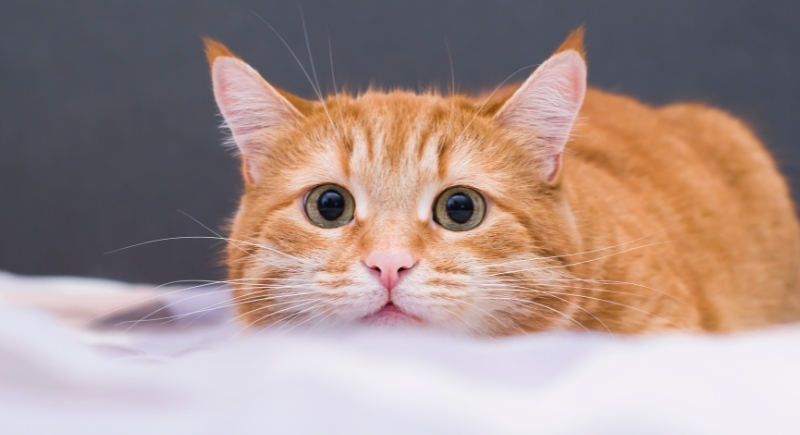Why Do Cats Chatter at Birds?
You might notice your cat pause at the window, focus on a bird outside, and make a quick clicking or chirping sound. It isn’t a meow or a growl. It’s a behavior known as chattering, and it’s fairly common in cats.
The sound usually appears when they’re watching prey they can’t reach. Researchers think it relates to excitement, frustration, or instinctive hunting patterns.
The Hunter Within

Image via Getty Images/Irina Gutyryak
Inside every cat, no matter how pampered, lives a hunter. When your cat sees a bird, squirrel, or other small creature moving quickly, instinct takes over. Their pupils widen, their body stiffens, and the chatter starts. Experts believe this is an outlet for the adrenaline rush that hits when they spot prey. Since most cats can’t reach the animal they see, the chatter could be a mix of excitement and frustration. Think of it as the feline version of grumbling when something tempting is just out of reach.
Another idea is that cats might be mimicking the sounds of birds or rodents. In the wild, some species, such as ocelots, have been observed copying the cries of baby monkeys to lure them closer. Your cat’s rapid clicks and chirps could be their way of copying bird calls, a leftover instinct from wild ancestors. Large cats such as ocelots have also been heard making similar noises, supporting this theory that mimicry might have once helped them hunt more effectively.
The Prey Sequence in Action
Chattering also fits into what behaviorists call the prey sequence. Cats have a built-in process for hunting, which involves spotting, stalking, pouncing, and biting. The jaw-shaking chatter you hear could be part of this series of actions. Some specialists think it mimics the jaw movement cats use when delivering the killing bite. It’s an automatic reflex, as if their body is practicing the final step of a successful catch. What seems like a quirky sound is actually the result of instinct and coordination working together.
Many cat owners assume their pets are upset when they chatter at birds, but it’s usually a sign of excitement and mental stimulation. Cats don’t always catch prey in nature, and the act of watching and preparing is often as satisfying as the hunt itself. When your indoor cat watches birds through a window, they’re deeply engaged. Their brain’s reward system, called the seeking circuit, is activated, releasing dopamine and keeping them happily focused. So that strange clicking is less about annoyance and more about fascination and enjoyment.
Encouraging Healthy Chattering

Image via Getty Images/Petra Richli
Since chattering is normal, there’s no reason to stop it. In fact, it’s healthy to let your cat enjoy this natural behavior. Give them a good view of the outdoors with a perch near a window. A bird feeder outside can provide great entertainment and mental stimulation. Indoors, try puzzle toys or wand games that let your cat stalk and pounce safely. These activities help burn off energy and fulfill their hunting drive. Climbing trees, scratching posts, and interactive play sessions all contribute to a balanced and happy cat.
Cats chatter at birds because instinct, excitement, and old hunting strategies all play a role. It’s one of those small reminders that, despite the cozy naps and fancy food, your cat is still a natural-born predator. The next time you hear that quick clicking sound, don’t interrupt. Just watch the intensity in their eyes and know you’re witnessing something ancient and deeply rooted. It’s not frustration you’re hearing but pure engagement in a moment that connects them to their wild past.